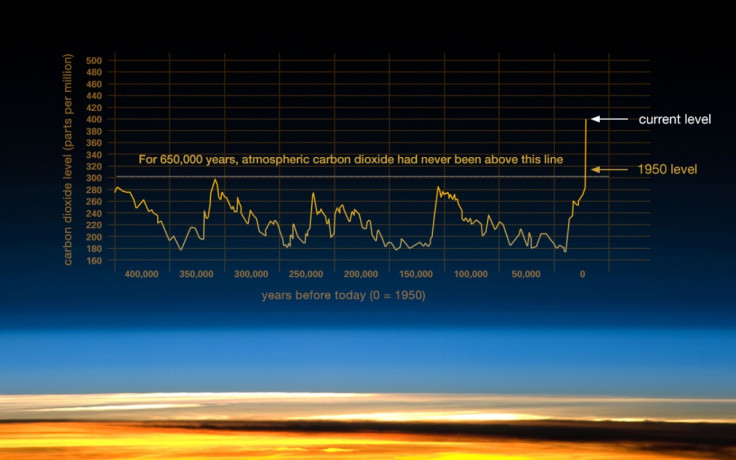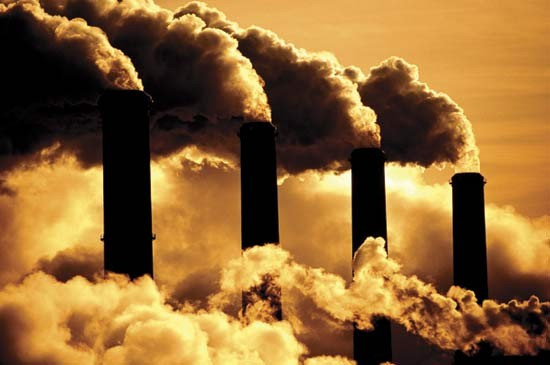COP21: What's the difference between climate change, manmade climate change and global warming?

COP21 will kick off on 30 November and run until 11 December with world leaders coming together to establish a new international climate agreement. This agreement aims to establish reduced greenhouse gas emissions in order to try to keep global warming below 2C by the end of the century.
With the world focused on the Paris climate change summit, IBTimes UK explains some of the semantics involved.
What is climate change?
Climate change refers to, unsurprisingly, changes to Earth's climate. It refers to the large-scale and long-term shifts in the planet's weather patterns and temperatures over its 4.5 billion year history.
For example, during this period there have been at least five major ice ages, or glacial ages, where there was extreme cooling of the climate. This led to large areas of land to be covered by ice sheets and glaciers. The most recent peaked around 21,000 years ago and ended roughly 11,500 years ago.
In between ice ages there were periods of warming. The Cretaceous period, when the dinosaurs lived, was one such time with temperatures around 4C above modern levels. We are currently in an interglacial period, known as the Holocene epoch. This refers to the last 11,500 years. An interglacial period separates consecutive glacial periods. How long the Holocene period will last is not known, although generally interglacial periods last for less time than glacial periods.
Since the Industrial Revolution, average global temperatures have been increasing at an unusually fast rate. Between 1901 and 2012, the average temperature increased by 0.89C. While this does not seem a lot, it is extremely high compared with climate change patterns seen throughout Earth's history. 2015 is expected to be the hottest year on record, scientists announced earlier this year. Just a year earlier, they said 2014 was the hottest year on record. In fact, all of the 10 warmest years between 1880 and 2014 have taken place since 1998.
What is global warming?
Global warming is the increase of global temperatures. As previously mentioned, temperatures across the planet vary depending on climate, and we are currently seeing temperatures increase on land and in the oceans. This warming is believed to be caused by greenhouse gas emissions, with the likes of carbon dioxide, methane and water vapour creating a "greenhouse" around the planet. While heat from the Sun is let in, it cannot escape back out, trapping heat inside the Earth's atmosphere.
This is a natural process and without it the planet would be extremely cold. However, the burning of fossil fuels releases more of these gasses than there would be naturally, meaning the planet is warming at a higher rate than it should. Over the last million years, when the planet emerged from ice ages, global temperatures normally rose by around 4-7C over around 5,000 years. In the last hundred years, it has risen by 0.7C – ten times faster than the average rate of warming following an ice age. Current models suggest Earth will get between 2-6C warmer by 2100. This would be 20 times faster than the average rate of warming.
Global warming does not mean it will feel warmer. Global warming is as such – it is the whole planet, not a local weather forecast.
What is manmade climate change?

Manmade climate change refers to changes to the planet's climate specifically caused by human activities. Because of the unusual warming seen since the Industrial Revolution, it is widely accepted (especially among the scientific community) that greenhouse gas emissions from the burning of fossil fuels and other activities has caused global temperatures to increase, which is, as a result, causing changes to the climate.
Often cited is a recent study of almost 12,000 peer-reviewed articles on global warming. Of these, 66.4% of papers had no opinion on global warming. Of the remainder that did form an opinion, 97% agreed climate-warming trends over the last century are very likely the result of manmade activities. Just 0.7% rejected anthropogenic global warming. The NOAA (National Oceanic and Atmospheric Administration) notes that current global warming "is an unprecedented type of climate change, and it is driving a cascade of side effects in our climate system". These changes include sea level rises, shifts in wind, rainfall and seasons and changes to the ice sheets.
The accelerated changes (as a result of human activities) because of global warming are expected to bring more drought in some parts of the world, extreme weather events, food shortages and conflict.
Business as usual

This term, business as usual, is often referred to in studies looking at climate change, specifically greenhouse gas emissions. Many studies look at what will happen (according to sophisticated climate models) by the end of the century under different scenarios. Business as usual refers to levels of emissions if they continue on their current course, with no effort made to curb them.
Common but differentiated responsibility
This phrase will be used at COP21 and is a principle as it is one of the cornerstones of sustainable development. It became an international legal concept at the Rio Earth Summit in 1992.
According to the Centre for International Sustainable Development Law (CISDL), common but differentiated responsibility comes from the idea that all states have a responsibility to protect the environment and climate system. However, it also recognises that different states should have different responsibilities – it takes into account historical differences in the contributions of states to global environmental problems and their economic and technical capacity to tackle them.
For example, developing countries historically produced less emissions and less money to finance change, so have less responsibility, while developed countries (which benefited economically from exploitation of fossil fuels) that produced more emissions and have more money to spend on climate mitigation should bear the brunt of the responsibility.
© Copyright IBTimes 2025. All rights reserved.






















